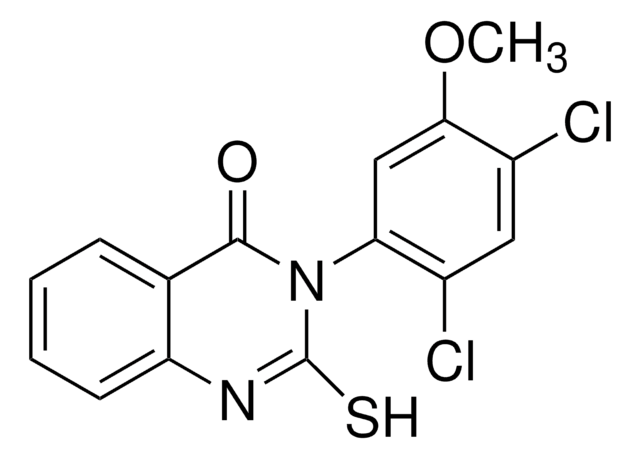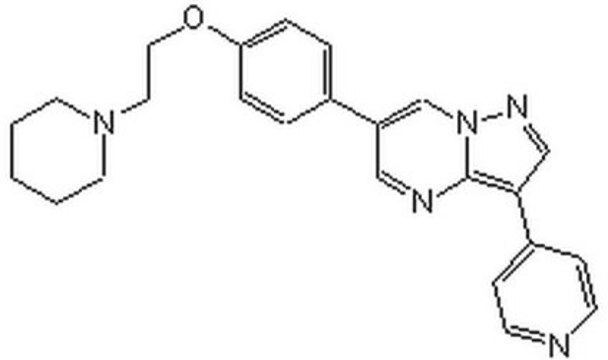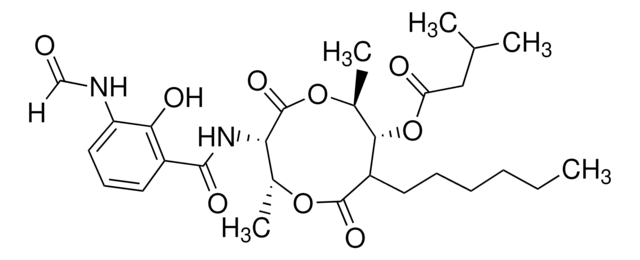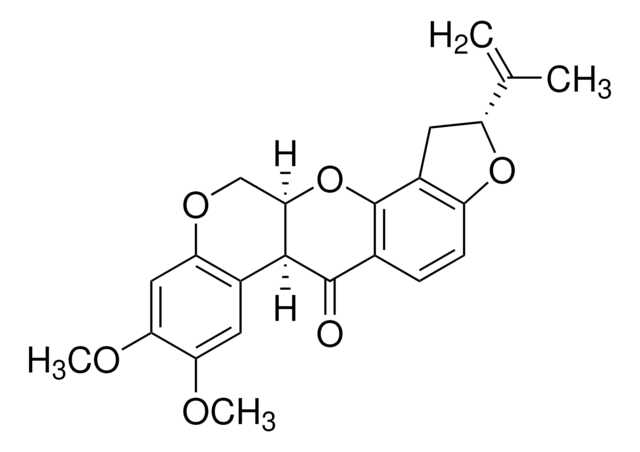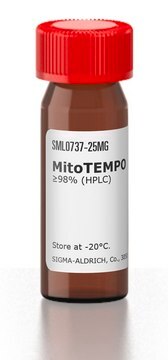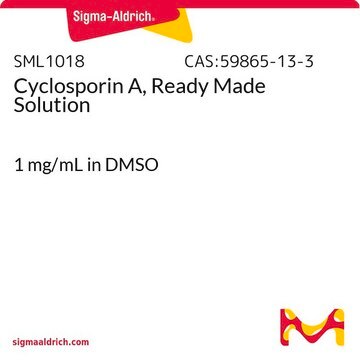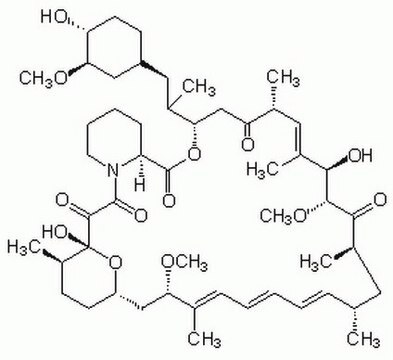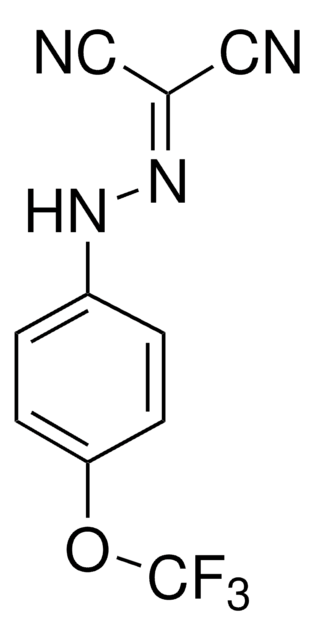475856
Mitochondrial Division Inhibitor, mdivi-1
The Mitochondrial Division Inhibitor, mdivi-1, also referenced under CAS 338967-87-6, controls the biological activity of yeast Dnm1 and mammalian Drp1.
Synonym(s):
Mitochondrial Division Inhibitor, mdivi-1, Mitochondrial Division Dnm1/Drp1 ATPase Inhibitor, 3-(2,4-Dichloro-5-methoxy-phenyl)-2-thioxo-1H-quinazolin-4-one
About This Item
Recommended Products
Quality Level
Assay
≥95% (HPLC)
form
solid
manufacturer/tradename
Calbiochem®
storage condition
OK to freeze
protect from light
color
white
solubility
DMSO: 10 mg/mL
shipped in
wet ice
storage temp.
−20°C
InChI
1S/C15H10Cl2N2O2S/c1-21-13-7-12(9(16)6-10(13)17)19-14(20)8-4-2-3-5-11(8)18-15(19)22/h2-7H,1H3,(H,18,22)
InChI key
NZJKEVWTYMOYOR-UHFFFAOYSA-N
General description
Packaging
Warning
Other Notes
Legal Information
WGK
WGK 3
Flash Point(F)
Not applicable
Flash Point(C)
Not applicable
Certificates of Analysis (COA)
Search for Certificates of Analysis (COA) by entering the products Lot/Batch Number. Lot and Batch Numbers can be found on a product’s label following the words ‘Lot’ or ‘Batch’.
Already Own This Product?
Find documentation for the products that you have recently purchased in the Document Library.
Our team of scientists has experience in all areas of research including Life Science, Material Science, Chemical Synthesis, Chromatography, Analytical and many others.
Contact Technical Service